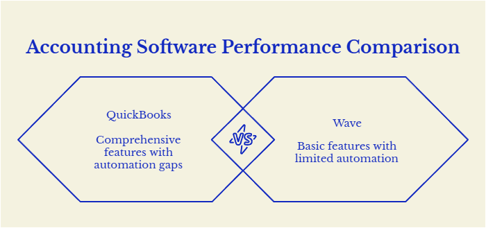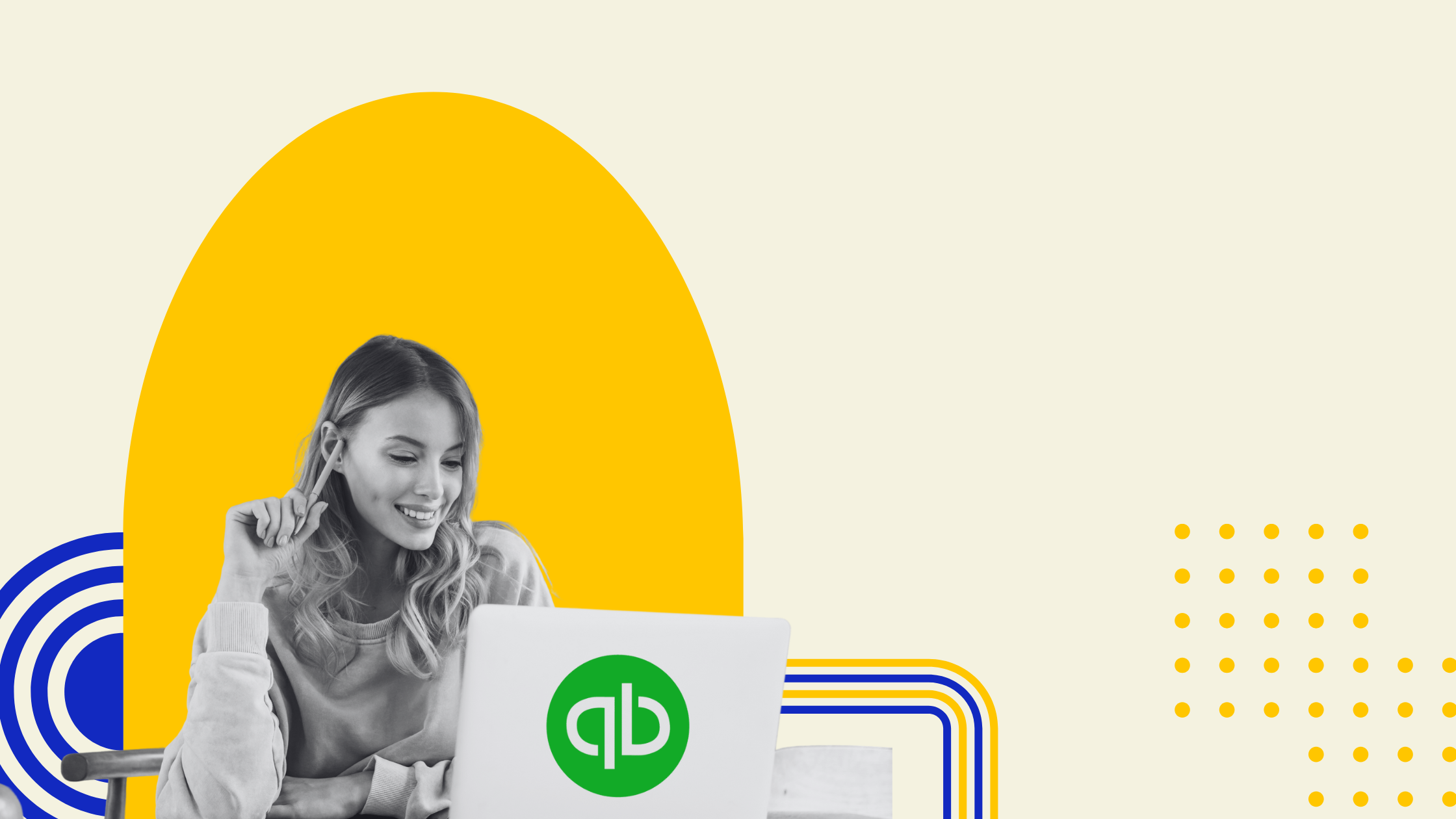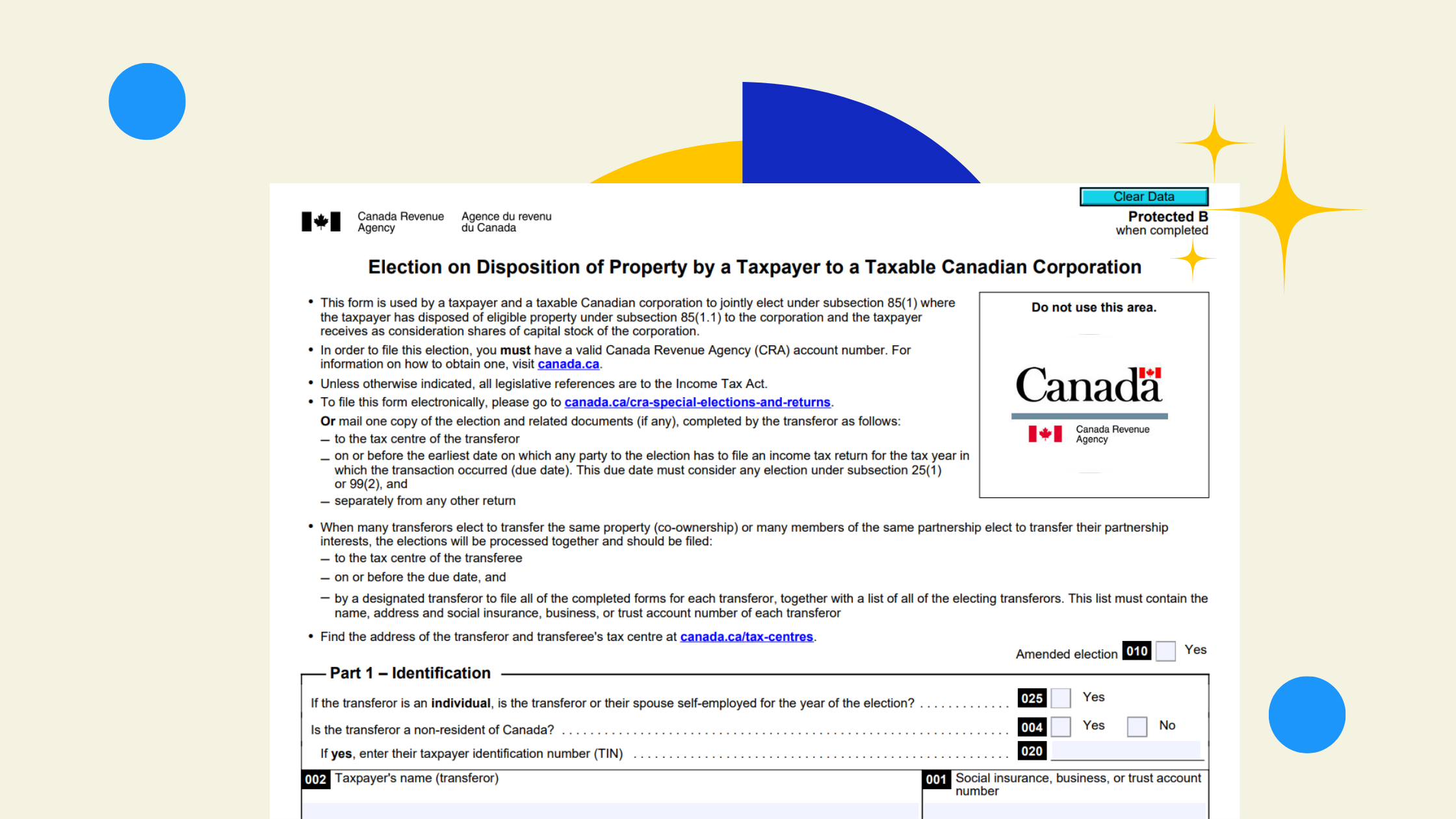If you're a small business owner in Canada, chances are you've had at least one late-night session wrestling with invoices to clients, expense management, and tax prep. You know your business needs proper business accounting software, but with so many online accounting platforms out there, how do you decide?
QuickBooks Online and Wave Accounting are two of the most popular cloud-based accounting software choices, but they serve different needs. Picking the wrong one could cost you time, money, and frustration.
Let’s break them down so you can make the best choice for your business.
QuickBooks: The Feature-Packed Powerhouse
QuickBooks is a household name in accounting software solutions and for a good reason. Many small business owners rely on it to manage their financial health efficiently. However, while it boasts a robust feature-rich accounting software set, it also has some automation gaps that could slow down larger businesses seeking scalability.
Pros:
✅ Comprehensive Overview of Features – QuickBooks offers Accounts Receivable, Accounts Payable, inventory tracking features, financial reports, payroll taxes, and advanced capabilities for financial management.
✅ Bank Connections & Reconciliation – Automatically sync bank statements, credit card transactions, and payment processors.
✅ Scalable Solution – As your business grows, QuickBooks scales with you, offering higher-tier plans and customization options.
✅ Third-Party Integrations – Works with third-party apps like project tracking tools, QuickBooks Online Accountant, and e-commerce management.
✅ Robust Reporting Tools – With customizable reports, profitability reports, custom reports, and industry-specific reports, you get accurate reporting.
✅ Built-in Automation & Custom Fields – QuickBooks Online Advanced includes automation features such as late payment reminders, invoice templates, and customizable dashboard settings.
Cons:
❌ Manual Data Entry for Some Features – While QuickBooks offers powerful accounting features, users may need to configure journal entries, customizable reporting, and status tracking manually (as with any general accounting software).
❌ Extra Costs for Payroll Automation – QuickBooks Payroll automation is not included in standard pricing plans and requires an additional cost.
❌ Complexity for New Users – Due to its wide range of accounting functions, QuickBooks can be overwhelming for beginners, making accounting customization and reporting options harder to navigate.
While QuickBooks is a powerful accounting software product, businesses seeking a truly automated bookkeeping system may need to supplement it with automation-focused tools like Dext, AutoEntry, ApprovalMax, or Zapier.
Wave: The Free and Simple Solution
Wave Accounting is a great option for small businesses and freelancers looking for cost-effective accounting software choices. It offers essential accounting features at no cost, making it an attractive choice for businesses on a tight budget. However, while the free version covers basic accounting features, it lacks key additional features that growing businesses may require—unless they upgrade to Wave Pro.
Pros:
✅ Completely Free Core Features – Wave’s basic plan includes accounting by default, unlimited users, and invoice creations.
✅ User-Friendly & Simple Interface – Designed for ease of use, even for those with minimal accounting experience.
✅ Unlimited Transactions & Professional Invoices – No restrictions on transactions per month, invoicing features, or house bookkeeping.
✅ Canadian-Friendly – Includes sales tax calculation (GST/HST/PST) for Real Estate, e-commerce, and service-based businesses.
✅ Wave Payments and Wave Payroll – Accept Payments through multiple payment options including subscription payments, personal payments, and payment gateways.
✅ Wave Pro Includes Automation – Categorization of bank transactions, automatic bank imports, and Wave Payroll are included in the $16-a-month plan.
Cons:
❌ Limited Automation in Free Plan – The free version requires manual bank rules and lacks report templates for financial analysis.
❌ No Multi-User Workflow Automation – Lacks customizable templates for custom fields, user limits, and activity tracking.
❌ Limited Support for Free Users – Support is mainly self-service unless you’re a Wave Pro user.
❌ Scalability Concerns – While great for freelancers, larger businesses may outgrow
Wave’s accounting lineup. It does integrate with QuickBooks Online for added flexibility.
Wave is an excellent cloud accounting software for freelancers and small businesses with simple accounting practices. However, businesses looking for automated bookkeeping, unpaid bill tracking, and invoice templates may need to upgrade to Wave Pro or consider alternatives like QuickBooks Online or Xero.

Which One Is Right for You?
✅ Choose QuickBooks if… You need accountant access, audit trail tracking, and powerful features for cash flow management.
✅ Choose Wave if… You’re a freelancer or small business looking for a free, easy-to-use solution with basic accounting features and limited hours of invoicing needs.
The Bottom Line
Both QuickBooks Online and Wave Accounting are excellent accounting providers, but the right one depends on your type business of business, monthly cost, and long-term accounting sophistication.
If you need advanced features with scalable solutions, QuickBooks Online is the way to go. If you prefer a no-cost solution with simple financial management, Wave Accounting is a great fit.
Looking for more accounting software ratings and insights tailored to Canadian small businesses? Follow us for expert tips and strategies to keep your financial statements and business days running smoothly!



.png)

